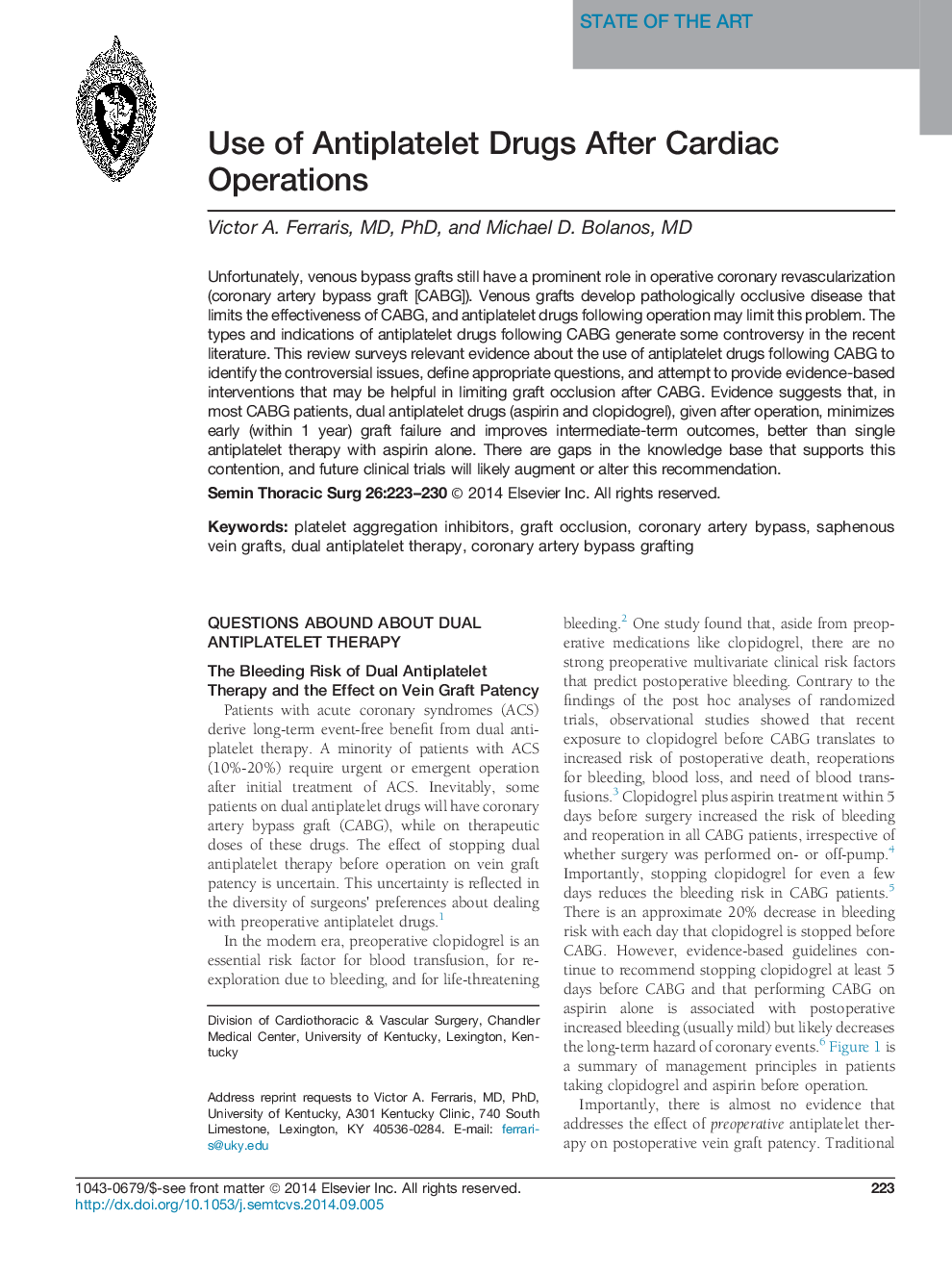| Article ID | Journal | Published Year | Pages | File Type |
|---|---|---|---|---|
| 3025075 | Seminars in Thoracic and Cardiovascular Surgery | 2014 | 8 Pages |
Unfortunately, venous bypass grafts still have a prominent role in operative coronary revascularization (coronary artery bypass graft [CABG]). Venous grafts develop pathologically occlusive disease that limits the effectiveness of CABG, and antiplatelet drugs following operation may limit this problem. The types and indications of antiplatelet drugs following CABG generate some controversy in the recent literature. This review surveys relevant evidence about the use of antiplatelet drugs following CABG to identify the controversial issues, define appropriate questions, and attempt to provide evidence-based interventions that may be helpful in limiting graft occlusion after CABG. Evidence suggests that, in most CABG patients, dual antiplatelet drugs (aspirin and clopidogrel), given after operation, minimizes early (within 1 year) graft failure and improves intermediate-term outcomes, better than single antiplatelet therapy with aspirin alone. There are gaps in the knowledge base that supports this contention, and future clinical trials will likely augment or alter this recommendation.
